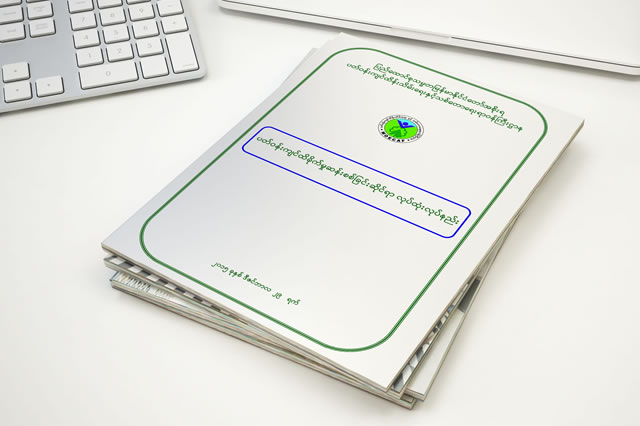MCRB Welcomes Adoption of the Environmental Impact Assessment Procedures and Calls for Effective Implementation and Enforcement

The Myanmar Ministry of Environmental Conservation and Forestry (MOECAF) has adopted its long-awaited Environmental Impact Assessment Procedures which have been put together with the help of the Asian Development Bank and been the subject of extended discussion.
The Procedures are accompanied by the first set of National Environmental Quality Guidelines, focussed on emissions, and will also be accompanied by procedures concerning registration and approval of EIA consultants, as well as the submission of the EIAs themselves.
It is confirmed that a Myanmar EIA should cover social as well as environmental impacts. The Myanmar regulatory framework has gaps in a number of areas of social protection such as resettlement and the rights of indigenous peoples, and the Procedures (Article 7) make clear that ‘projects that involve Involuntary Resettlement or which may potentially have an Adverse Impact on Indigenous People shall comply with specific procedures separately issued by the responsible ministries. Prior to the issuance of any such specific procedures, all such Projects shall adhere to international good practice (as accepted by international financial institutions including the World Bank Group and Asian Development Bank) on Involuntary Resettlement and Indigenous Peoples’. This reference to international standards is welcome. MCRB has produced a draft briefing paper on Indigenous Peoples Rights and Business in Myanmar which analyses these issues further.
What is critical now is effective implementation and enforcement. MOECAF needs to ensure through the screening, scoping and review processes that EIAs are comprehensive and relevant, consider all material impacts, and that companies use appropriate social and environmental practices propose adequate mitigation measures in the Environment Management Plans, so that human rights are respected. The requirements in the Procedures around consultation also need to be understood widely by companies, local authorities and other stakeholders, and consultation process and reports of its outcome checked by MOECAF and enforced. This consultation – as set out in Article 61 - needs to be genuine, not tickbox.
Finally, we need to start seeing some of these IEEs and EIAs which have already been conducted, and the ones which are in process. A few of the oil and gas companies who are embarking on seismic exploration have disclosed their IEEs, such as BG. But too many of the assessments which have been submitted to MOECAF over the past couple of years (in response to an earlier and what should now become defunct requirement under the Myanmar Investment Laws), are sitting in hard copy on desks in MOECAF gathering dust, rather than being published electronically where stakeholders can access and comment on them.
The Procedures are clear on the requirement on company to publish the report (Article 38 for IEEs, Article 65 for EIAs): Not later than fifteen (15) days after submission of the report to the Department, the Project Proponent shall disclose the report to civil society, PAPs, local communities and other concerned stakeholders: (i) posting on the Project or Project Proponent’s website(s), (ii) by means of local media (i.e. newspapers); (iii) at public meeting places (e.g. libraries, community halls); and (iv) at the offices of the Project Proponent.
If these assessments are disclosed, and open to public scrutiny and comment, that might help to drive a better standard. Some of the EIAs I have seen which have been done by both Myanmar and international consultancies - but generally not made public - are completely inadequate. It is also in in the interest of the project proponent. If there are environmental, social, cultural or political showstoppers it would be better to know about them and try to find solutions to them before a company invests significant money and breaks ground – as the cancellation of the Dagon City real estate project near the Shwedagon Pagoda demonstrated.
The second aspect is enforcement of the commitments in the Environmental Management Plan. There is very weak capacity in MOECAF both nationally and sub-nationally to do this. The best way to fix that is for Naypyidaw to provide the human resources and political backing, and for donor governments to give technical support to their regulatory function. Donors - and maybe even companies - should also support civil society groups who can monitor these commitments in the EMP - which under the new Procedures also have to be published. These are contractual commitments by the company and if they fail to comply, their licences can be suspended revoked. That is a potentially very powerful regulatory tool, but only if the commitments are monitored and enforced.
The EMP also allows the government the opportunity to introduce international standards of environmental and social protection even where such requirements do not - yet - exist in Myanmar Law. But they need to introduced in a non-discriminatory way. The government needs to require the same standards of all projects in the sector, and not just foreign projects, or not just projects from 2016 onwards.
Finally, it is essential to require existing projects, particularly ones which have been the subject of documented negative environmental and social impacts to draw up and obtain clearance for Environmental Management Plans that require the same standards as new projects. Examples of such projects include the Tigyit coal and Heinda tin mines, or the Yuzana owned cassava plantations and processing plants in Kachin state, or the UMEHL-owned acid factory near Letpadaung. The legacy of past projects is addressed in Article 8/9/10 of the Procedures which requires existing projects to put plans and commitments in place, but gives MOECAF the ability to set the timetable. This will be a massive task for the incoming government and the new Environment Minister. One opportunity to build trust and understanding and prioritise scarce resources would be for the Minister to ask regional governments to work with local civil society groups to inventory the projects which now require compliance audits and EMPs, identify the ones having the most negative impacts, and prioritise setting early deadlines for those companies to become compliant or have their licence cancelled. Let’s hope the clean-up will now begin!
ဆက္စပ္ေသာ အေၾကာင္းအရာ
- အရပ္ဖက္အဖြဲ႔အစည္းေခါင္းေဆာင္မ်ားအတြက္ သဘာ၀ပတ္၀န္းက်င္ႏွင့္ပတ္သက္၍ ဥပေဒဆိုင္ရာ စည္းရံုးလွူံေဆာ္မႈ စြမ္းေဆာင္ရည္ျမွင့္တင္သည့္ သင္တန္းေပးျခင္း
- Investors Need to Identify their Impacts on Myanmar’s Biodiversity and Ecosystems Early On, to Avoid Cost and Conflict Later
- ရွမ္းျပည္နယ္ အေရွ႕ပိုင္းႏွင့္ ေတာင္ပုိင္းရွိ အရပ္ဖက္အဖဲြ႕အစည္းမ်ားအား ပတ္ဝန္းက်င္ထိခိုက္မႈ ဆန္းစစ္ျခင္းႏွင့္ တာဝန္ယူမႈရွိေသာ စီးပြားေရး လုပ္ငန္းဆိုင္ရာမ်ားကုိ သိရွိနားလည္ႏုိင္ေစရန္ အသိပညာေပးျခင္း
- Working with Community Groups in Shan State on Responsible Business and EIA
- ပလပ္စတစ္ညစ္ညမ္းမႈကို အေကာင္းဆံုးတိုက္ဖ်က္နိုင္ရန္ သန္႔ျမန္မာ တြင္ MCRB ပါဝင္မည္
Share:


 English
English မြန်မာ
မြန်မာ မြန်မာ (unicode)
မြန်မာ (unicode)








